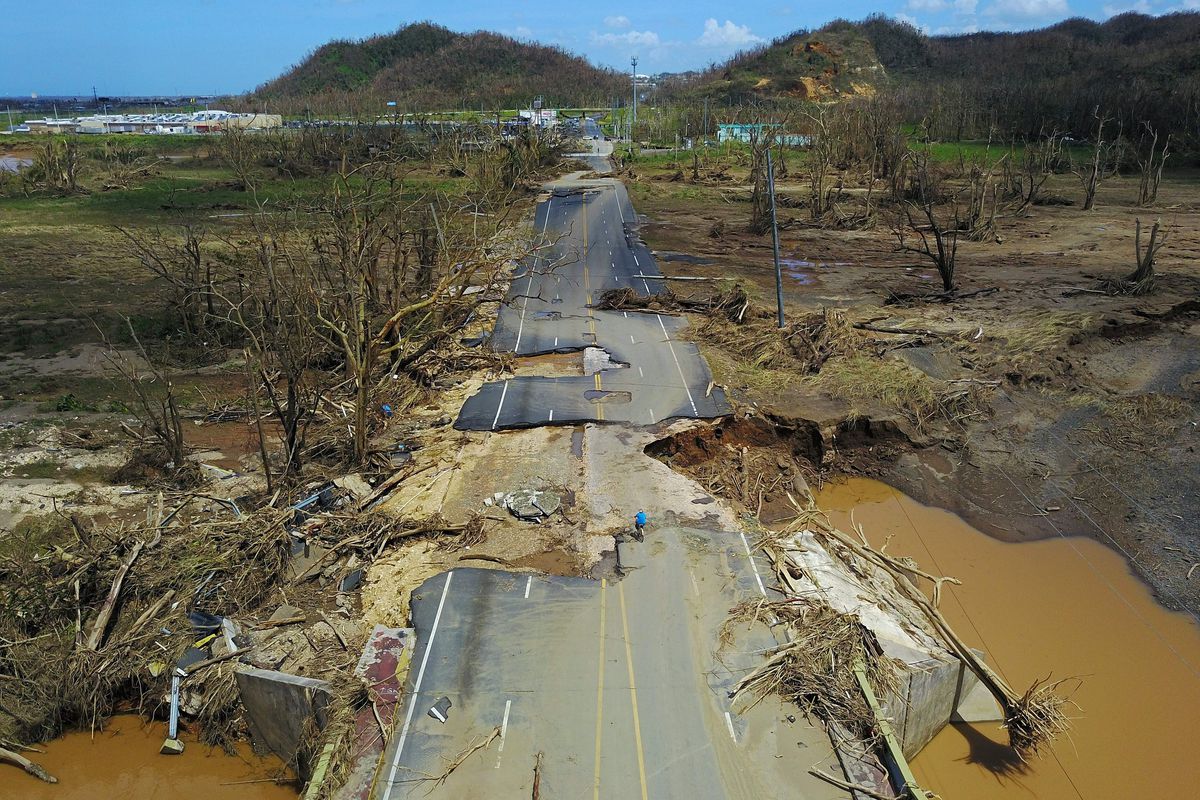SAN JUAN
SAN JUAN, Puerto Rico: Residents of Puerto Rico accused President Donald Trump of being slow to dispatch aid after Hurricane Maria and clumsy in his public remarks once it was clear the U.S. territory had been devastated by the storm.
After days of urging, Trump on Thursday temporarily lifted restrictions on foreign shipping from the U.S. mainland to Puerto Rico to move aid more quickly and the Pentagon-appointed a senior general to oversee military relief operations.
Puerto Rico Governor Ricardo Rossello has praised Trump’s response but some on the island of 3.4 million people complained it was not fast enough. The Caribbean island has been without power for a week and is suffering shortages of reliable drinking water.
Shipping containers with aid have piled up at Puerto Rico’s ports and the head of the Federal Emergency Management Agency (FEMA), Brock Long, acknowledged being dissatisfied also with the federal response.
For some Puerto Ricans, comments by Trump about the island’s protracted financial crisis, and the amount of attention he has given to other, less pressing, issues while Puerto Rico suffers, just compounds the misery.
“He’s giving more importance to guys going down on their knees for the national anthem than a humanitarian emergency here,” Martha Moreno, 54, a teacher, said outside a convention centre in the capital San Juan.
Trump has escalated a controversy over National Football League players refusing to stand during the U.S. national anthem, tweeting about the issue frequently in recent days.
TOUGH VISIT?
The Republican president might face anger at the federal government’s response if he meets the public on a visit to Puerto Rico on Tuesday.
Puerto Rican Lara Brown, 42, said she expected “nothing” from Trump’s visit and complained that the relief had taken “far too long” to arrive.
U.S. presidents have been particularly careful not to be seen underplaying natural disasters since President George W. Bush was widely criticized for mishandling Hurricane Katrina in 2005.
Trump was quick to be seen to be coordinating aid when hurricanes Harvey and Irma struck Texas, Louisiana and Florida in recent weeks.
After well-received responses to the two other major hurricanes, Trump is battling to show Americans he can handle another natural disaster in a trickier location.
“The full weight of the United States government is engaged to ensure that food, water, healthcare and other life-saving resources are making it to the people in need,” White House spokeswoman Sarah Sanders said on Thursday.
She said 10,000 federal government relief workers were now in Puerto Rico, including 7,200 troops, and that 44 of the island’s 69 hospitals were now fully operational.
As Trump began to react to the latest hurricane, he made a reference to Puerto Rico’s other big trauma: its $72 billion debt crisis and bankruptcy. “Much of the Island has been destroyed, with billions of dollars owed to Wall Street and the banks which, sadly, must be dealt with,” Trump wrote in a tweet on Monday.
That struck many Puerto Ricans as insensitive.
Puerto Ricans are American citizens who can vote in U.S. presidential election primaries on the island but do not get to vote in presidential general elections unless they move to the mainland.
“We’re a colony. We don’t get to vote for anything in the U.S. but we have to obey every federal law. We’re worth nothing to them. We’re a debt. We’re a liability,” said Jomally Fernandez, 40, a Puerto Rican who lives on the mainland and was in San Juan with her family.
Her father-in-law Ken Van Etten, 69, a Vietnam veteran, sharply criticized Trump’s response to the hurricane.
“I really doubt whether he gives a damn. When he makes statements like, ‘Well it’s not our fault, their infrastructure is poor and they have lost a lot of money.’ What does that have to do with anything right now?” said Van Etten, who lives in Oregon.
Carolina Racines, 39, was preparing to leave the island temporarily with her Puerto Rican husband, two children and dog on a cruise ship.
“I hope that (Trump) will stop saying that everything is fine here and that things are moving along,” said Racines, a Colombian who has lived in Puerto Rico for 14 years.